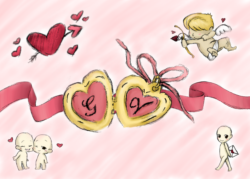Over the course of my college years, I watched my mother’s personality dissipate as she turned into a shell of the sociable, laughing, shining individual I had always known her to be. To the outside world, she maintained a facade, displaying her unscathed physical appearance to hide the battles she was fighting inside. She managed to deceive her own children, who were reluctant to intrude upon their mother’s personal life during their self-indulgent high school and college years.
The truth is, her appearance was deceiving. My mom’s been a tough cookie for as long as I can remember; she’s that customer who will argue with a salesperson until she gets exactly what she wants, ignoring the line forming behind her. At the age of 50, she had divorced twice and sought a solid, “normal” married life that would pleasantly complement her successful career.
When I came home for summer after my first year at college, I expected the tranquility that home is supposed to imply. She had been remarried for two years to a humorous guy who had turned me into a nerdy Jeopardy fan. Yet, juxtaposed with our primarily telephone-based relationship of the past year, I could soon tell that her personality was not quite the same as I remembered. Living under the same roof again made it impossible for her to continue hiding the truth, which had undeniably afflicted her morale. I noticed that she had become uncharacteristically subdued, and ultimately, whether she wanted to admit it or not, her children were no longer children. We could easily see through the act of “keeping up of appearances.”
That summer was when I first realized that the house had become quiet. An unnatural and unfamiliar hole in communication was creeping through the walls. My mom wore a ubiquitous straight face. My stepfather let his mania for the Yankees become a complete diversion from reality. I would avoid the basement because I knew he’d always be there watching one game or another. I think my mom lived for the hours when my two brothers and I were around because we provided a screen from what was really going on. The household had a tendency to obscure the truth by making much out of trivialities. I preferred not to contribute to that cycle-I stopped begging to have our hot tub fixed, for example.
It took me until mid-July to decide whether my concerns were legitimate enough to admit to my brothers. I wanted to approach her, but wondered whether it was appropriate, as she had not yet confided in me. How was I even to try to comprehend what she was enduring? Did I, at a mere 18 with no boyfriend myself, have a right to suggest that a monumental change in her life was in order?
My inner voice warned that my perceptions might be exaggerated. Over the next two years, as she became increasingly reserved, I struggled to find an appropriate way to broach the subject. I needed the magic words that would pierce her facade. I felt alone-I was the only person close enough to the situation to recognize that life within our household was far from normal.
If I had forced her to consider my realization that this marriage had disintegrated, I would have encountered her natural inclination to deny the unpleasant. The conclusion that I reached and hopelessly accepted was that she had unintentionally relinquished her ego in exchange for a muted tolerance of the status quo. A third divorce? Unimaginable. Living alone as she grew older? This was not the future she had envisioned.
I was mistaken. In December 2003, my mother announced the decision I had been waiting to hear for two years-they were separating. I had underestimated her willingness to admit that this marriage had failed. I was stunned and pleasantly surprised when she told me that she had been deliberating over the decision the past year, waiting for a better chance to materialize. I have to give her credit. While I only observed her struggle to keep up the pretenses, she had simultaneously been endeavoring to salvage things; she just chose not to tell me about it.
The truth was, I was the one guilty of wearing rose-colored glasses. I had allowed my fear of exacerbating an already unpleasant situation to overshadow my (and apparently also her) instinct that something was seriously wrong. Reality tends to be more difficult to bear than the shades of truth we often create to appease our qualms. Later understanding that my mother and I did in fact agree upon the requisite outcome, I realized that I over-emphasized how I would have acted in her position. I suppose I felt slighted that she was deliberately keeping me outside the situation, but it was her means of protection.
One has to realize when it is and is not acceptable to intervene in someone else’s life. Time showed that my mom was fully capable of coming to terms with things without my help, but I should not have discounted my instinct. A little self-confidence on my part could have alleviated those long hushed months for both of us. It is said that sometimes the journey is more important than the destination. This surely was not true for my mother. But I think it was for me.




